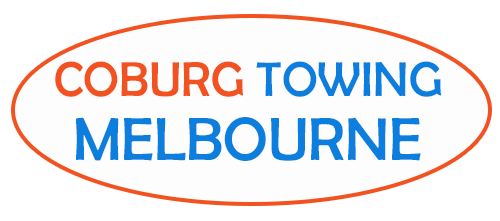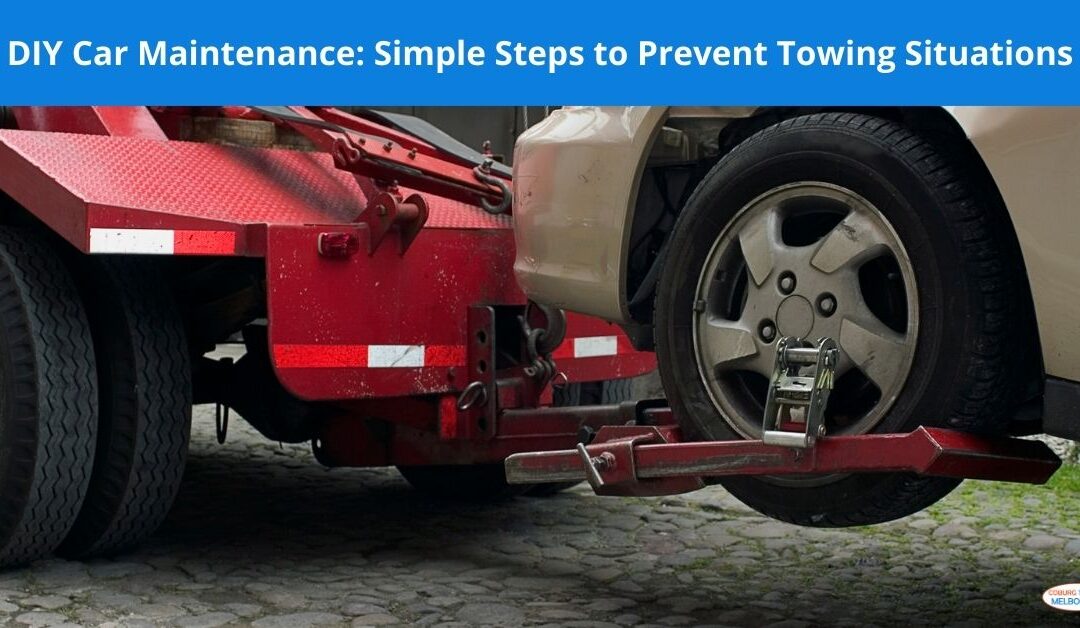Regular car maintenance is essential to ensure a smooth and safe driving experience. Many of the most common towing situations can be avoided by keeping your vehicle in good working condition. By following a few simple DIY maintenance steps, you can prevent costly breakdowns and avoid being stranded on the side of the road waiting for a tow truck. Here’s a guide to help you keep your car in top shape and minimize the risk of needing roadside assistance.
1. Check Your Tire Condition
Tires are one of the most critical components of your vehicle when it comes to safety and performance.
Tire pressure: Check your tire pressure regularly using a tire gauge. Low pressure can cause poor handling, reduced fuel efficiency, and increased wear. Most cars have a recommended tire pressure listed in the owner’s manual or on a sticker inside the driver’s door.
Tread depth: Worn tires with low tread depth can lead to hydroplaning or skidding, especially in wet conditions. Use a penny to check tread depth—insert it into the tire grooves with Lincoln’s head upside down. If you can see the top of Lincoln’s head, it’s time to replace your tires.
Tire rotation: Rotate your tires every 5,000 to 8,000 miles to ensure even wear and extend their lifespan.
2. Inspect Fluids Regularly
Your car relies on several vital fluids to keep it running smoothly. Checking these fluids regularly can prevent serious mechanical issues that could lead to breakdowns.
Engine oil: Check your oil level and condition using the dipstick. If the oil is dirty or low, change it or top it up. Regular oil changes are crucial for engine longevity, typically every 3,000 to 7,500 miles, depending on your vehicle.
Coolant (antifreeze): Ensure your coolant is at the proper level to prevent overheating. A lack of coolant can cause the engine to overheat, potentially resulting in costly repairs or a call for a tow truck.
Brake fluid: Low or dirty brake fluid can lead to brake failure, a dangerous situation that can result in an accident. Top up the brake fluid if necessary, and replace it as recommended by your vehicle’s manufacturer.
Transmission fluid: Check the transmission fluid level and condition. If the fluid is low or dirty, it can lead to transmission failure, which is not only expensive to repair but can also leave you stranded.
3. Keep Your Battery in Good Condition
A dead battery is one of the most common reasons people need a tow, but it’s also one of the easiest problems to prevent.
Clean battery terminals: Corrosion on the battery terminals can lead to poor connections and prevent your car from starting. Clean the terminals with a wire brush and apply a little petroleum jelly to prevent further corrosion.
Test battery health: If your car is slow to start or you’ve had the same battery for more than three years, have it tested. Many auto parts stores offer free battery testing, so you can replace it before it leaves you stranded.
4. Replace Worn Belts and Hoses
Belts and hoses play a crucial role in your car’s operation, controlling essential functions like the alternator, water pump, and air conditioning.
Check for cracks: Inspect belts for signs of cracking or fraying and hoses for leaks, swelling, or soft spots. If you notice any damage, replace the part before it fails completely.
Listen for squealing: If you hear a squealing noise when you start the car or accelerate, it could be a sign that a belt is worn and needs replacement.
5. Maintain Your Brakes
Functional brakes are vital for your safety, and neglecting them can lead to dangerous driving conditions and potential towing situations.
Listen for noises: If you hear squealing, grinding, or clunking when you apply the brakes, it’s time for an inspection. These sounds usually indicate worn brake pads or other issues.
Check brake pads: Worn-out brake pads can severely affect your vehicle’s stopping power. If the pads are less than a quarter of an inch thick, they need to be replaced.
6. Test Your Lights
Having fully functioning lights is critical for visibility and safety, especially when driving at night or in poor weather conditions.
Headlights and taillights: Check that all your lights are working properly, including your headlights, taillights, brake lights, and turn signals. Replace any burnt-out bulbs promptly.
Clean your lights: Dirt and grime can dim your headlights, making it harder for you to see and be seen. Clean them regularly to ensure optimal visibility.
7. Replace Air Filters
Your car’s air filter prevents dirt and debris from entering the engine, helping it run efficiently.
Inspect the filter: A clogged or dirty air filter can reduce fuel efficiency and cause engine strain. Check the filter regularly and replace it if it looks dirty or hasn’t been changed in a while.
8. Inspect Your Exhaust System
A faulty exhaust system can lead to poor engine performance, reduced fuel efficiency, and harmful emissions.
Listen for unusual noises: If you hear loud rumbling or hissing from the exhaust, it may be damaged or leaking. Have it inspected and repaired to avoid further problems.
Look for rust: Rusted parts can lead to holes in the exhaust system, causing noise and dangerous fumes to enter your vehicle.
9. Monitor Warning Lights
Your car’s dashboard is equipped with various warning lights to alert you to potential problems. Never ignore these lights, as they often signal issues that need immediate attention.
Check engine light: If this light comes on, have your car diagnosed by a professional. The problem could range from a minor issue to something that could leave you stranded.
Brake and battery lights: These lights indicate problems with critical systems that should be addressed promptly to avoid dangerous situations.
Conclusion
By taking these simple DIY steps, you can prevent many common car problems and reduce the likelihood of needing a tow. Regular maintenance ensures that your vehicle stays in good working order and helps you avoid unexpected breakdowns. Remember, a little attention now can save you time, money, and frustration later on. Happy driving!
If you are in Brunswick, Victoria 3056, and looking for a car removal service, this is the best way to visit us.
Coburg Towing Melbourne
31 Cameron St,
Coburg VIC 3058
03) 9999 7525


Recent Comments